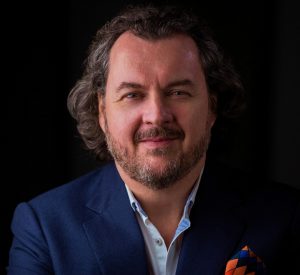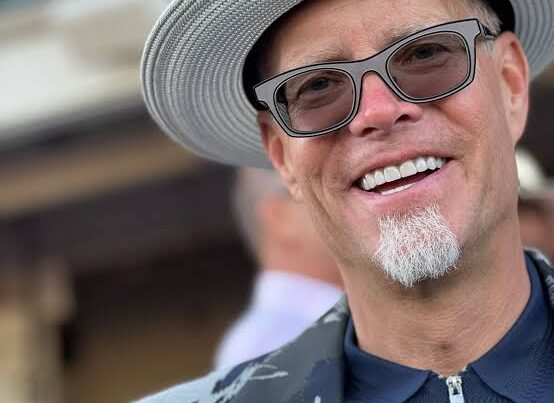Podcast: Play in new window | Download
Subscribe: RSS
How Do You Measure Happiness and the Wellbeing of Your Team?

Nic Marks
Nic Marks was once described as a “Statistician with a Soul” because of his unusual combination of ‘hard’ statistical skills and ‘soft’ people skills, he draws on scientific evidence to show that everyone benefits when businesses take happiness seriously.
Nic founded Friday Pulse, a London-based innovative tech business to be the catalyst in changing the world of work for the better. Previously, Nic worked in public policy and advised the UK Government on how to measure population wellbeing. His 2010 TED talk on his work has been watched over 2 million times and he is an in-demand public speaker and workshop leader.
What We Discuss With Nic Marks In This Episode
- How do we measure happiness
- Happiness as a social emotion
- Which countries are the happiest in the world
- How happiness affects our health
- The 5 ways to wellbeing
- How happiness is transformative in organizations
Transcript Highlights
How To Measure Happiness
The measurement side is not very different at work than in life and there are different ways of measuring it. The principle is that you’re the expert of your happiness. It’s a question of asking and listening.
The idea is, if you measure people’s experience every week, you get a very dynamic responsive indicator about employee experience. And then you can stack that data up in the organization.
Then senior leaders can see how each team is faring and particularly how resilient they are. They’re able to estimate when people are likely to leave, innovation, creativity, productivity, etc. – by using correlation coefficients in statistics. Now, they’re working with governments as well.
There are also other schools of thought for measuring such as experience sampling and cognitive assessment.
There are also drivers towards that – the causes of happiness and the differences between it. There’s more nuance to it.
It’s a reflective process. The awareness building and maturation process are partly natural. As we get older, we do become more reflective and things happen to us sometimes through our fault and sometimes by not our choosing. And then we pause to reflect. The more we do that, the happier life becomes because you’ll reflect more on the choices that you make, both in your personal life and work.
Happiness as a Social Emotion
Psychologist and Nobel Prize winner for economics Daniel Kahneman says that “Happiness is almost a social emotion.” There’s that whole nuance of how relationships are formed and they have to do with our emotional state at the time.
Which Countries Are The Happiest
There is a correlation or relationship between income and happiness. It’s a weak relationship because it’s not the major driver of your happiness. But of course, money protects you against unhappiness.
People at the bottom 25% of income in Sweden, Finland, Norway, Denmark are much happier than the bottom 25% of income in the UK and much, much happier than the US. It’s more income inequality that drives those things at a big level.
The most interesting international comparison is between Latin America and Central Eastern Europe. They are former communist states, with very similar levels of GDP per capita and very similar levels of life expectancy. But both of them have very different levels of happiness. Latin Americans are much happier than Central-Eastern Europeans. The reason is the strong presence of social connectedness in Latin America.
How Happiness Affects Our Health
The biggest health indicator is life expectancy. How long do people live? Studies suggest that if you’re in the happiest 25%, as compared to the bottom 25%, you live 7 to 10 years extra. Some studies even put it 12 to 15. And it’s even bigger than body mass index and smoking. Better social relationships increase longevity.
The 5 Ways to Wellbeing
- Connect
Our social relationships are the most important determinant of our happiness. Build relationships with the people that are most important to you and maintain them.
- Be Active
The fastest way out of a bad mood is physical activity. If you’re just mildly in a bad mood or having a bad time, go for a walk, or run a bicycle, put on music and dance.
- Take Notice
Bring awareness and notice what’s going on for you because that’s how you learn and that’s how you understand what’s meaningful to you. Notice what’s going on around you and notice the seasons changing.
- Keep Learning
It can be informal such as learning a new dish or picking up a hobby again that you used to do when you were young. Whatever it is, learn something new.
- Give
There’s something magical that happens when we give. Not only does the receiver feel good, but we feel good.
How Happiness Is Transformative in Organizations
As leaders, if you want to build great teams, then great teams are happy and productive.
If they’re just productive and they’re unhappy, that team will not last. It won’t be sustainable and you’ll break up. If they’re happy and they’re not productive, you’re going out of business. Hence, the sweet spot is to be happy and productive.
Episode Resources
- Measuring Morale In Your Workplace (Free for 12 Weeks): www.fridaypulse.com
- The Happy Planet Index TED Talk: www.youtube.com/watch?v=M1o3FS0awtk
Connect With Nic Marks
Did You Enjoy The Podcast?
If you enjoyed this episode please let us know! 5-star reviews for the Leaders Of Transformation podcast on Apple Podcasts, Spotify, Pandora or Stitcher are greatly appreciated. This helps us reach more purpose-driven entrepreneurs seeking to make a positive impact in the world. Thank you. Together, we make a difference!
Additional Episodes You May Like
- 333: John English: Creating a Stress-Free Workplace Through Mindfulness
- 266: Rajeev Daswani: Empowering People In The Workplace
- 241: Tevis Trower: Facilitating Emotional Wellbeing In The Workplace
- 114: Kathie Donovan: Unconform – Harnessing The Radical Power Of Courage
- 042: Valerie Alexander: Speaking Happiness In The Workplace
- 038: Eric Walrabenstein: Synthesizing Happiness In Your Everyday Life










